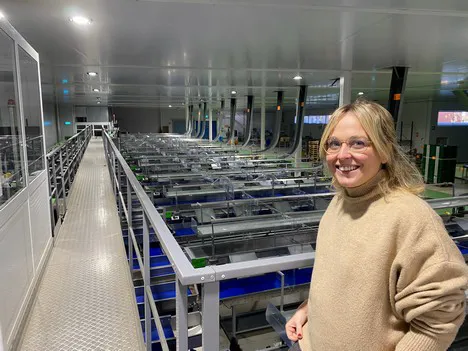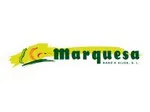In general, allowing the consumer to enjoy a good, tasty piece of fruit and getting them to repeat their purchases has apparently not been fully achieved yet by the Spanish stone fruit sector. To achieve it, it will not only be necessary to do a good job with the varieties and production techniques, but also with the handling and calibration, where efficiency and automation will be key to alleviate the growing increase in labor costs and to be able to stand out in an increasingly demanding and competitive market.
"Supplying fruit that is very enjoyable to eat has been our main obsession for years," says Montse Baró, recently appointed president of Afrucat and third generation of the Lleida-based family business Baró e Hijos, founded in 1962 and devoted to the production and marketing of stone fruit, pears and persimmons, and whose sales are focused on supermarket chains, both in the domestic and export markets.

"Our strength is that we can count on our own production. In recent years, great improvements have been achieved in the fruit's visual aspect, but I think there is still work to be done when it comes to the taste. So far, a lot of attention has gone to the sugar levels, but that isn't everything. The fruit can be very sweet, but tasteless at the same time. The aim is to find a balance, as consumers are becoming increasingly demanding, given the growing competition from other attractive products on the shelves. Offering tasty stone fruit will be key to boosting consumption. To do this, we will need to have good varieties and do very well in the production and harvesting process," she says.
After the harvest, an efficient sorting is very important. In 2017, the Lleida-based company expanded and restructured its plant, as its own production area continued to increase. This led to the installation of Maf Roda's Pomone IV sorting machine.
"We needed to improve our calibration systems, seeking to go a few steps further in our quest for quality and the optimization of costs (such as labor), which continue to rise every year. We were not focusing on a specific machine, but looking for a partner with whom we could work in the long term and evolve with their technology, and we saw that we could achieve this with Maf Roda. For us, it is essential to be able to count on a powerful technical support service during the 4 or 5 months that our campaign lasts, when we work at a frenetic pace," says Montse Baró.
"We started in May with the apricots and continued in June with the peaches, nectarines and flat peaches, in July with the summer pears and in autumn with the persimmon. Now we are also going to launch a mountain apple project. To work with several fruits at the same time, we need versatility in the machinery allowing us to make quick changes. Such is the case of the Pomone IV, with eight lanes that can work as two of four."
"Since we decided to work with Maf Roda, we have been focused on both external and internal quality calibration. We are also involved in the development of NIR technology, together with Maf Roda. We see great potential in this, as Brix levels can be detected on the sorting line - without cutting or destroying the piece of fruit - making it possible to work with different categories on the same machine," she says.
According to Montse Baró, process automation and robotization will be key to remain competitive in the market. "Last year, we paid a visit to the Maf Roda factory in France, where we were able to see first-hand the advances in robotization that the firm is making, with very interesting prototypes. We believe that companies in the sector will increasingly choose this path, as it will make it possible to improve the quality while minimizing production costs, which come mainly from the hiring of personnel. If we want to remain at the forefront in the international market, we must bear in mind that we are facing increasing competition from countries such as Greece and Turkey, whose quality has improved considerably in recent years and whose production costs are significantly lower than ours."
In addition to optimizing labor costs, investing in automation can also prevent situations like the one experienced at the beginning of the pandemic. "In last year's campaign, a few months after the pandemic hit, we found ourselves with only 20% of the workforce available to tackle the campaign. Situations like this are hardly foreseeable, but it is clear that if it has happened once, it could happen again. Scenarios are not always as we expect and it is better to be prepared."
 For more information:
For more information:
Montse Baró
Baró e Hijos S.L.
C/Prat de la Iba, 7
25171 Albatàrrec, Lleida
M: +34 606508639
T: + 34 973720008
[email protected]
www.baroehijos.com

María Cabello
Roda Ibérica S.L.
Avda. de la Llibertat n.º 53
46600 Alzira, Spain
T: +34 962403011
[email protected]
www.maf-roda.com
